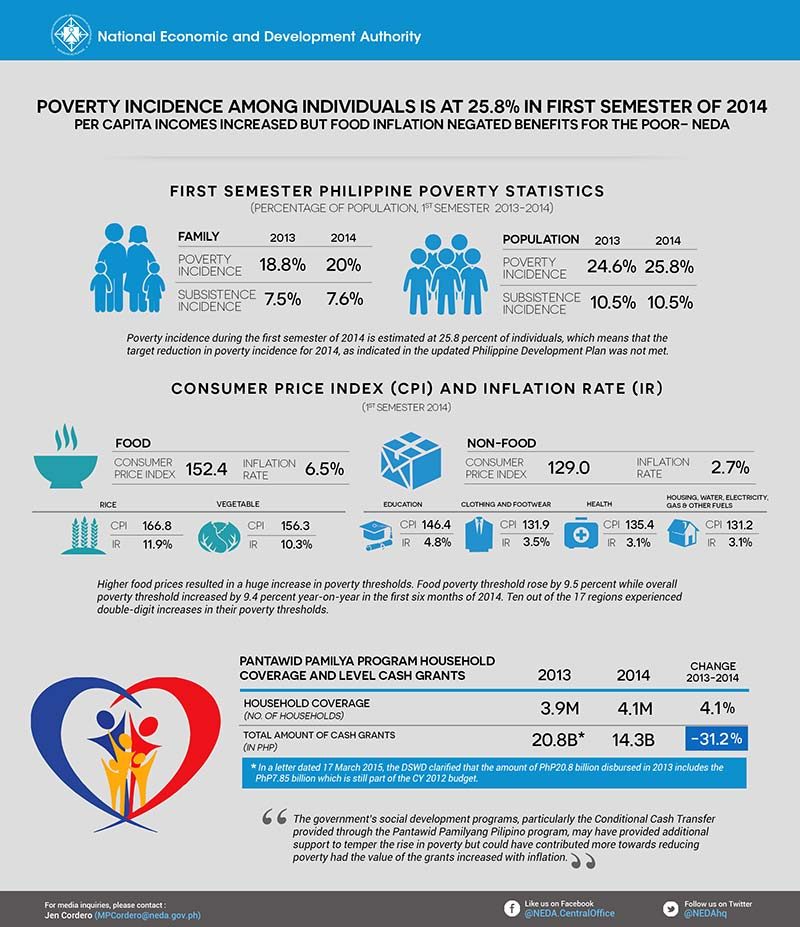SUMMARY
This is AI generated summarization, which may have errors. For context, always refer to the full article.

BORACAY, Philippines —Inclusive growth lays the economic foundation needed for more investments and innovation that is essential for middle income economies to escape the middle income trap and graduate to high-income status, according to the National Economic and Development Authority (NEDA).
“Escaping the so-called middle income trap requires governments and the private sector to do things differently and to continuously innovate to keep up with the growing demand associated with globalization,” said NEDA Assistant Director-General Rosemarie G. Edillon at the sidelines of the APEC Seminar on the Middle Income Trap held on May 15, Friday.
She added that offering a level playing field is essential to ensure this inclusivity.
“We can achieve [this] by providing for transparency of regulations and credibility of institutions, investing in human capital, and ensuring mobility to equalize opportunities,” Edillon said.
Vice President Jejomar Binay has been questioning the government’s inclusive growth policies most recently at the 36th National Conference of the Employers Confederation of the Philippines held also on Friday. Binay is the leading candidate for the 2016 presidential polls, based on surveys.
“The not-so-good news is that our poverty incidence in the first half of 2014 was still a dismal 25.8 %, even worse than the 24.6% rate we registered in the first half of the previous year, according to the Philippine Statistics Authority. One out of 4 Filipinos is living below the poverty line,” Binay said.

APEC Seminar on the Middle Income Trap
The NEDA-hosted APEC Seminar was organized to gather experts to reflect on current research on the middle income trap. APEC Economic Committee Chair Rory McLeod and APEC Secretariat Policy Support Unit Director Dr. Denis Hew led the event.
It was also intended to serve as a venue to discuss the challenges of middle income economies in sustaining economic growth to become high income economies.
Edillon facilitated the seminar’s session on the lessons from the middle income trap and implications for structural reform.
“Reforms in structural policies and regulations, infrastructure, education, and institutions, should be prioritized, as the main challenge really is to ensure that even the poor are able to participate in the growth process,” Edillon said.
She noted that as a middle income economy, it is crucial for the country to upgrade its products and processes in the global value chains.
This could be done through focused interventions on small and medium enterprises (SMEs) and through provisions for regulatory efficiency and greater incentives for skills upgrade.
Among the discussants in the seminar were:
- Dr. Juzhong Zhuang, Deputy Chief Economist for the Asian Development Bank
- Dr. Annette Pelksman-Balaoing, Assistant Professor from the Erasmus School of Economics, Erasmus University Rotterdam
- Mr. Derek Gill, Principal Economist of the New Zealand Institute of Economic Research
- Mr. Sun Xuegong from the Institute of Economic Research, National Development and Reform Commission of China
- Professor Christopher Findlay, Executive Dean of the Faculty of Professions, University of Adelaide and Vice-Chair of the Australian Pacific Economic Cooperation Committee.
The seminar on the Middle Income Trap will serve as an input to future APEC work on the area, especially to the Structural Reform Ministerial Meeting slated in September. – Rappler.com
Add a comment
How does this make you feel?
There are no comments yet. Add your comment to start the conversation.